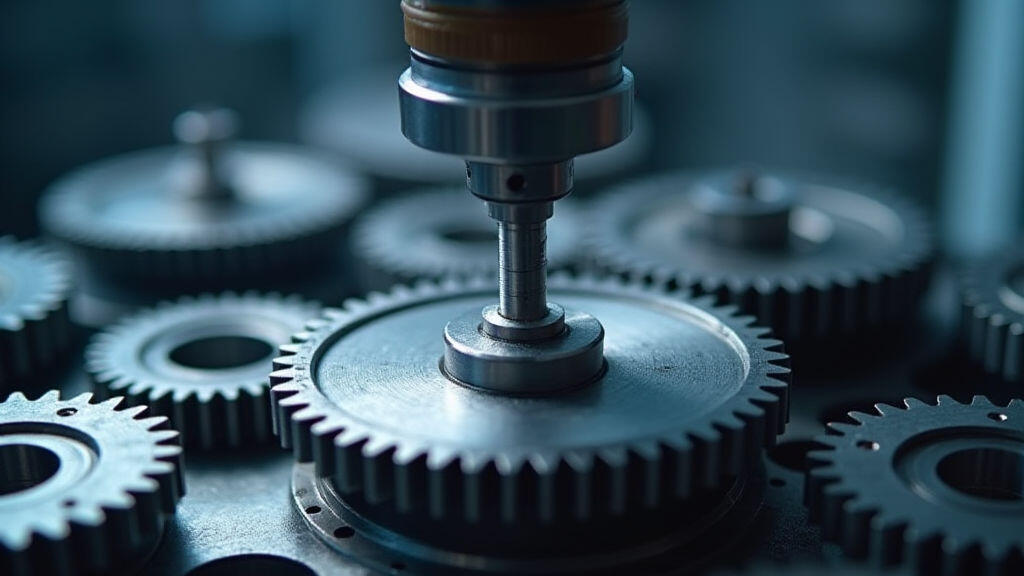
The agricultural sector is undergoing a rapid transformation, driven by the increasing demand for efficient, sustainable, and technologically advanced farming practices. Central to this advancement is the adoption of sophisticated machinery – tractors, harvesters, irrigation systems, and more – all relying heavily on robust and reliable components like gear motors. Selecting the right gear motor manufacturer is a critical decision for agricultural machinery enterprises, directly impacting productivity, operational costs, and long-term profitability. However, navigating the complex landscape of gear motor suppliers can be fraught with pitfalls. This article outlines common mistakes companies make during the procurement process and provides actionable solutions to ensure a successful partnership. With the ongoing push for precision agriculture – leveraging data analytics and IoT to optimize farming – the need for dependable and high-performance gear motors is only intensifying.
1. Focusing Solely on Price – Ignoring Quality & Reliability Risks
Perhaps the most prevalent mistake is prioritizing the lowest price without thoroughly evaluating the manufacturer’s capabilities and product quality. While cost-effectiveness is undoubtedly important, prematurely dismissing potential partners based solely on price can lead to significant downstream consequences. Inferior gear motors result in increased downtime, costly repairs, and reduced operational efficiency. Consider the long-term Total Cost of Ownership (TCO), which includes initial purchase price, maintenance costs, repair expenses, and potential downtime losses.
Solution: Don’t treat the motor as a commodity. Develop a comprehensive evaluation criteria that includes factors beyond price. This should encompass:

2. Neglecting Technical Compatibility and Performance Needs
Agricultural machinery operates under demanding conditions – exposure to dust, moisture, extreme temperatures, and heavy loads. Purchasing a gear motor that isn't properly matched to the intended application is a recipe for failure. Ignoring factors like torque requirements, speed, duty cycle, and environmental operating conditions can lead to premature wear and tear. Furthermore, misalignment between the motor’s specifications and the equipment's demands will result in reduced efficiency and shortened lifespan.
Solution:
3. Lack of Communication and Collaboration
Effective communication throughout the vendor selection and procurement process is crucial. A lack of clear communication can lead to misunderstandings, delays, and ultimately, a poorly suited product. This includes not only defining the exact requirements but also maintaining open lines of communication for design modifications, production updates, and problem-solving.
Solution:
4. Overlooking Supply Chain Resilience and Geopolitical Risks
The global supply chain has faced significant disruptions in recent years. Relying on a single supplier, particularly one located in a region susceptible to political instability or natural disasters, can expose agricultural machinery enterprises to significant risks. Geopolitical tensions, trade wars, and unforeseen events can impact the availability of critical components and increase lead times.
Solution:
5. Neglecting After-Sales Service and Support
The relationship with a gear motor manufacturer doesn't end with the sale. Reliable after-sales service, including technical support, spare parts availability, and repair services, is essential for minimizing downtime and maximizing the lifespan of the equipment. A manufacturer that doesn't offer adequate support can significantly impact the long-term profitability of the agricultural machinery enterprise.
Solution:
The Future of Gear Motors in Agriculture: Precision and Sustainability
The agricultural sector is increasingly focused on sustainability and precision farming techniques. Gear motors are playing a vital role in enabling these advancements, powering automated systems, precision irrigation, robotic harvesting, and variable rate application technologies. Furthermore, the rise of electric tractors and other electrified agricultural equipment is creating new demand for high-efficiency gear motors. Manufacturers like MES-Drive are investing heavily in developing energy-efficient and durable gear motors that meet these evolving needs.
The key to success lies in proactive vendor selection, prioritizing quality, reliability and a long-term partnership. By avoiding these common pitfalls and implementing the suggested solutions, agricultural machinery enterprises can ensure they secure the right gear motor partners for a more efficient, profitable, and sustainable future. The investment in a reliable gear motor is not just a purchase; it's an investment into the future of farming.
Leave A Reply
Your email address will not be published. Required fiels are marked